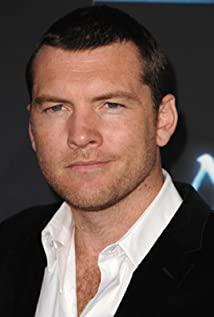The movie "Dead Altitude" is a disaster adventure film jointly produced by Walker Taito Films and Universal Pictures in 2015. Based on real events in 1996, the film tells the story of two commercial mountaineering teams led by Rob and Scott each climbing Mount Everest but encountering a mountain disaster.
The story focuses on the main character Rob and his commercial mountaineering team. The so-called "commercial mountaineering team" refers to an organization that professional mountaineers charge fees, contact guides, organize logistics, and serve as team leaders to help amateur mountaineers reach the top. Rob's clients have complex backgrounds, including doctors from Texas, poor postmen, and professional women from Japan. Their levels are uneven, their personalities are different, and they each have different worries or misfortunes. However, this "untidy" state of members within the team is probably the commonality of most teams. Therefore, first of all, acknowledging the internal differences of team members, trying to accept their existing state, and then starting from this foundation to pursue goals, and even cleverly use internal diversity to promote the realization of team goals, which is very important for team managers to That said, it's an instructive idea.
But the existence of a team depends on the existence of goals after all, and there is no team without a common goal. To unite diverse members, we must first define goals. In the film, various members of the mountaineering team were asked why they had to reach the summit. When the nonsensical reason "because the mountain is there" was laughed at, a female climber from Japan said that because she has conquered the highest peaks on the remaining six continents, conquering the remaining seventh became a must . Postman Doug said that on the one hand, he is to inspire his children to dare to chase their dreams and strive to do things that ordinary people think are impossible, and on the other hand, to be able to see the scenery that others cannot see. "Everyone has their own aspirations", and the motives of people to do the same thing are inevitably different. But in this talk and self-examination, the team members all clearly and firmly established the same goal before reaching the summit, that is, to conquer the highest peak in the world.
A goal is set, and action must be taken to achieve it. Leaving aside the details of the film, the most impressive plot is that in order to help the postman reach the top, Rob, regardless of the principle of climbing Mount Everest—must turn back at 2 o’clock in the afternoon—and chose to stay after the closing time of the turnaround. Accompany the postman onwards. It is worth mentioning that the postman also participated in Rob's mountaineering team last year, but fell short of the 300 meters before the summit. This time I came here for the second time, just to fulfill a long-cherished wish. To this end, the postman worked two jobs to raise the cost, and Rob gave him a very favorable discount to make this trip possible. In the end, although the two finally reached the top, they encountered a blizzard on the way down. Because Rob insisted on accompanying the postman who had reached the limit, both of them were killed in the end, and Harold, who had been evacuated from the dangerous area, who went to rescue him, also died in the snow. From a perceptual point of view, we see the brilliance of humanity in Rob: he encourages the postman to stick to his dreams, offers generous discounts, takes personal risks to help team members realize their dreams when the time limit for climbing is over, Always be on the lookout for team members. However, from the perspective of team management, what we see is that Rob, as a team leader, is trapped by "human feelings", his disregard for team rules, his knowingly committing mistakes, and his disregard for the overall situation and lack of in principle. In a team, the individual is always smaller than the collective, and the individual's personal feelings can never interfere with the achievement of the team's goals. Just imagine, if Rob insists on returning immediately, in addition to saving the lives of both him and the postman, and not having to be involved in the death of Harold who rescued him, he might also be able to help other members of the dead escape. Therefore, in a team, team members, especially team leaders, must always keep a clear head, not be kidnapped by temporary personal emotional emotions, always be guided by rational spirit, and oriented by the collective interests of the team. Not only to yourself or to some people in the team, but also to the team goals and all team members.
Finally, in addition to the internal management of the team, special attention should be paid to the handling of the team's external relations. In the film, Rob's team did not send a client to the top of Mount Everest in the whole year of 1995, and this year (96), there were also special reporters who followed the shooting and reporting. These two points put a lot of pressure on the team, especially Scott's team who also reached the summit on the same day, who is also in the business of commercial mountaineering teams. This may also affect the judgment of Rob and his logistics team to some extent. But we also saw that although the Scott team was robbed of the team reporter by Rob's team, they still chose to exchange information with competitors and work together to fight difficulties on the way up and down the mountain. Especially at the moment of life and death, the members of each summit team can cooperate sincerely, and even the IMAX team that did not choose to summit on the day, all help without hesitation. Although there is competition among the mountaineering teams, they should know how to cooperate and show the brilliance of human nature before the desperate situation. This is also true in daily life. The team must know how to use all reasonable and legal means to strive to defeat competitors. When faced with common interests or goals, all team members, especially team leaders, should know how to let go of their emotions and understand that competition and cooperation are always in a dialectical relationship.
View more about Everest reviews











